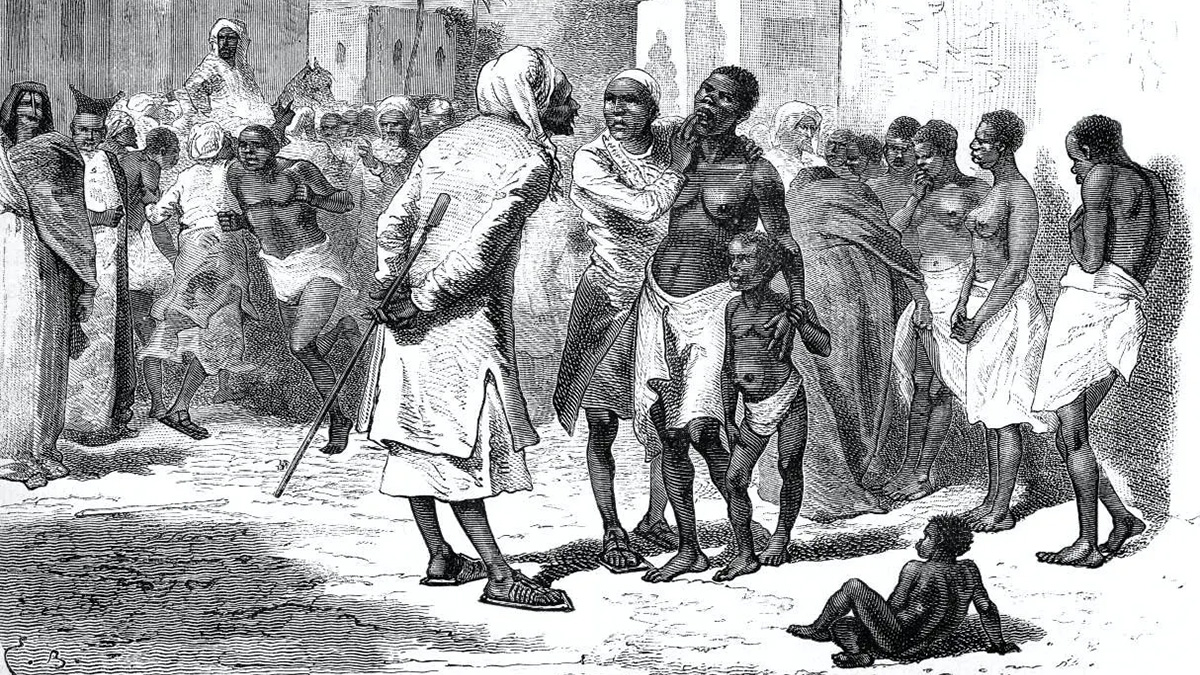According to the fantasy version of history invented by the left, slavery was invented by whip-cracking white men in 1619 and continues to be practised by wicked white men to this day. I wish I were being merely sardonic here, but as at least one university history lecturer has attested, many of his students leave high school believing almost exactly that.
It’s all the most ignorant lies, of course. Slavery was practised in nearly every culture in the world from the time humans first learned to dig in the dirt. In Africa especially, slavery was deeply ingrained and practised. Long before white men started the trans-Atlantic trade, Africans had been enslaving and brutalising each other for millennia.
And when white men tried to stop them, they were not at all happy.
Nigerian journalist and novelist Adaobi Tricia Nwaubani writes[…]
My great-grandfather, Nwaubani Ogogo Oriaku, was what I prefer to call a businessman, from the Igbo ethnic group of south-eastern Nigeria. He dealt in a number of goods, including tobacco and palm produce. He also sold human beings.
This was no invention of wicked colonialists. Rather, Africans enslaving Africans was an ancient and “honourable” tradition.
Nwaubani Ogogo lived in a time when the fittest survived and the bravest excelled. The concept of “all men are created equal” was completely alien to traditional religion and law in his society.
It would be unfair to judge a 19th Century man by 21st Century principles.
Assessing the people of Africa’s past by today’s standards would compel us to cast the majority of our heroes as villains, denying us the right to fully celebrate anyone who was not influenced by Western ideology.
Fine – now do Cecil Rhodes and Edward Colston.
It’s surely the height of hypocrisy – not to say a racist double-standard – that people from a continent with such an ingrained culture of slavery indignantly castigate and demonise white Johnny-come-latelys for what they had themselves been doing for millennia. It’s even more hypocritical that they demand to celebrate their own people for doing what they deplore in others.
In fact, to tacitly slight one of the noblest achievements of Western civilisation – the eradication of slavery – as some kind of foreign-devil ideology.
Africans indeed resented Europeans for forcing them to give up their treasured, lucrative tradition of human slavery.
The most popular story I’ve heard about my great-grandfather was how he successfully confronted officials of the British colonial government after they seized some of his slaves[…]
Buying and selling of human beings among the Igbo had been going on long before the Europeans arrived. People became slaves as punishment for crime, payment for debts, or prisoners of war.
The successful sale of adults was considered an exploit for which a man was hailed by praise singers, akin to exploits in wrestling, war, or in hunting animals like the lion.
Igbo slaves served as domestic servants and labourers. They were sometimes also sacrificed in religious ceremonies and buried alive with their masters to attend to them in the next world.
Slavery in the antebellum South looks almost benign by comparison. In fact, Africans clung to their trade in human flesh with a tenacity that exasperated and exhausted colonial authorities.
The trade in African people continued until 1888, when Brazil became the last country in the Western hemisphere to abolish it.
When the British extended their rule to south-eastern Nigeria in the late 19th Century and early 20th Century, they began to enforce abolition through military action.
But by using force rather than persuasion, many local people such as my great-grandfather may not have understood that abolition was about the dignity of humankind and not a mere change in economic policy that affected demand and supply.
As always, it’s whitey who’s to blame – even for trying to make Africans stop enslaving and killing each other.
Without much success, as it happened.
Records from the UK’s National Archives at Kew Gardens show how desperately the British struggled to end the internal trade in slaves for almost the entire duration of the colonial period.
They promoted legitimate trade, especially in palm produce. They introduced English currency to replace the cumbersome brass rods and cowries that merchants needed slaves to carry. They prosecuted offenders with prison sentences.
“By the 1930s, the colonial establishment had been worn down,” wrote Afigbo.
Eventually, the British threw up their hands in despair at ever persuading Africans to stop enslaving each other. The colonial authorities turned a tired, blind eye and Africans like the Igbo just went on doing what they now demonise white Europeans for – right up to the present day.
Slavery was not officially outlawed on the African continent until 1981, when Mauritania became the last country in the world to abolish slavery. Even so, it was never made an actual criminal offense until 2007. Chad did not criminalise slavery until 2017. Even so, slave markets openly operated in countries like Libya in recent years.
The next time a mob of African students at Oxford demand to tear down the statue of Cecil Rhodes – who established the very scholarship under which they were admitted – perhaps they ought to reflect on their own heritage of slavery first.

If you enjoyed this BFD article please consider sharing it with your friends.

